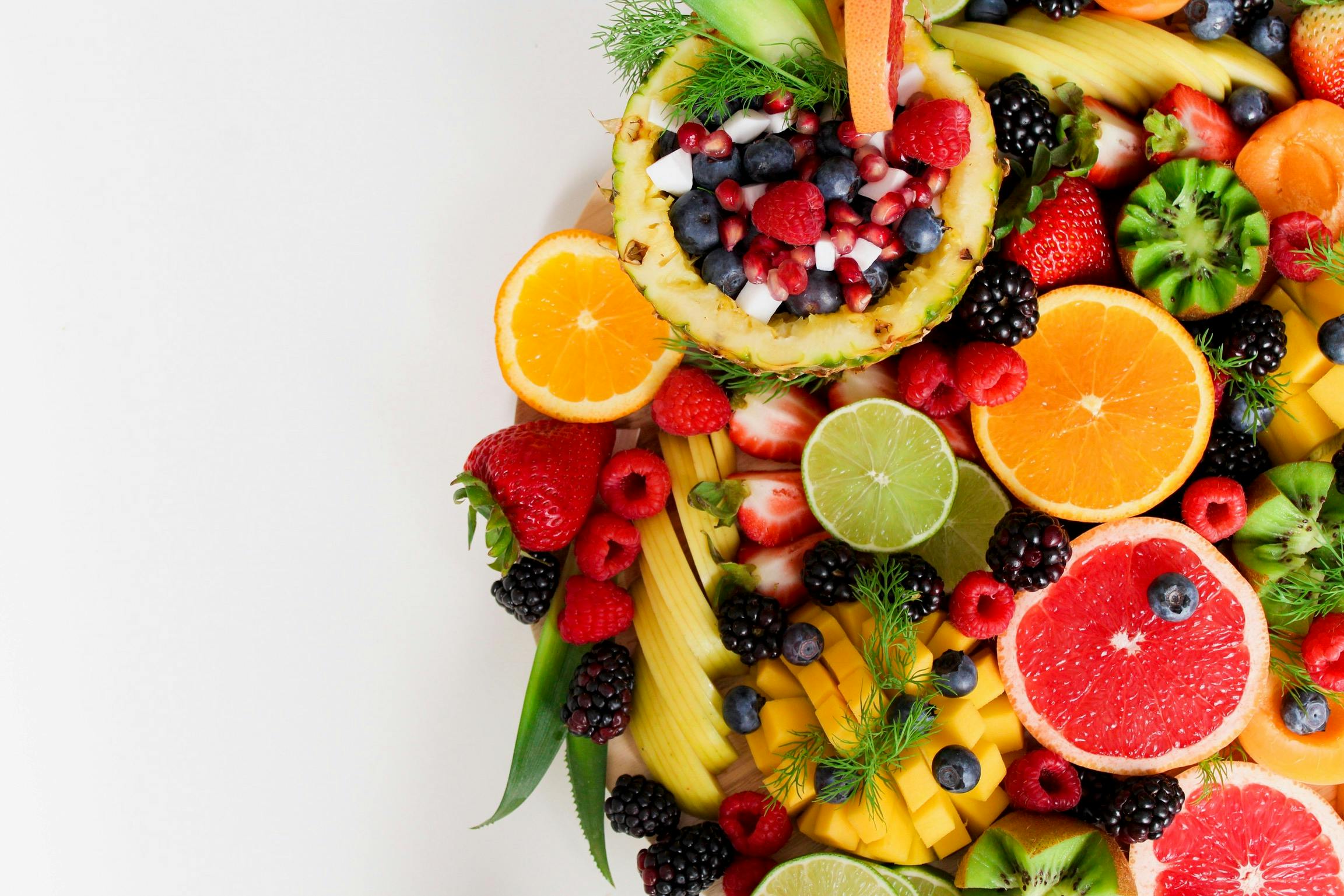Did you know it's estimated that 3.5 million people are living with cancer in the UK? That's a lot and only one chronic disease out of many. While we don't want to scare you and go into statistics, there's a lot more risks of chronic diseases nowadays than ever.
With so many free radicals circulating due to pollution, diet, smoking, alcohol and more lingering around, your body's not used to handling them compared to the time of our ancestors. While there are various ways to reduce your free radical exposure and fight them, one effective way you can start from today is by having a healthy diet packed with antioxidants.
Dive in with us in this post, learn about antioxidants, their benefits and sources.
What are antioxidants?
Antioxidants are substances that work to protect your cells from damage caused by free radicals. Free radicals are formed from your metabolism and a range of external environmental factors, which over time can cause damage to your DNA, cell membranes and other parts of cells. They're also associated with several chronic diseases such as diabetes, heart disease and cancer.
Antioxidants, however, can counteract the damage, neutralising the free radicals by donating electrons and breaking down the change reaction. If you have a healthy diet, you can get a lot of antioxidants from single food ingredients such as fruits and vegetables.
To know more about the sources of antioxidants, jump to the next section.

Sources of antioxidants
In order for you to survive and other living things, you NEED antioxidants. They're non-negotiable. In fact, your body is dependent on two major antioxidants, vitamin C, E, A and beta-carotene. However, there are many more types of antioxidants such as:
-
Glutathione
-
Lipoic acid
-
Coenzyme Q10
-
Flavonoids
-
Phenols
-
Polyphenols
-
Phytoestrogens
There's a TON of foods that have antioxidants. To help you get started, here's a quick breakdown of some of the major ones:
-
Fruits: Grapes, apples, oranges, strawberries, raspberries and other fruits high in vitamin C.
-
Vegetables: Carrots, spinach, broccoli, beetroots, sweet potatoes, asparagus and avocados.
-
Seeds and nuts: Pecan nuts, almonds, sunflower seeds, pumpkin seeds and more.
-
Beans and lentils
-
Green tea
-
Egg yolks
-
Mushrooms
-
Dark chocolate
-
Whole grains
Benefits of antioxidants
While it's clearly obvious that antioxidants can boost overall health, here is some more info about their benefits down to a micro level:
May help with weight management and metabolism
Antioxidants are thought to help boost metabolism and aid in weight management. In particular, antioxidants such as vitamin E, C and polyphenols help reduce inflammation and support metabolic functions.
Could support eye health
Antioxidants like Vitamin C and E may protect your eyes and lower your chances of cataracts. In case you're not familiar, cataracts are a condition which causes a build-up of cloud in the lens of the front of your eye, causing blurry vision. It's thought that antioxidants can slow down the progression of cataracts, allowing you to see for longer. Moreover, there's research that shows antioxidants may slow down macular degeneration, a common form of vision loss in the older generation.
Improves skin health
Vitamins C, E and A are thought to help improve skin health by protecting your skin cells from damage from free radicals and aiding collagen production. As antioxidants neutralise free radicals from pollution, UV radiation and more, they can reduce your risk of premature ageing like fine lines, wrinkles and saggy skin. They can help you maintain collagen and elastin, allowing your skin to look smoother and youthful.
Again, antioxidants like vitamin E can help strengthen your skin's moisture barrier, reducing dryness and enhancing resilience against other free radicals. Moreover, antioxidants like vitamin C can help inhibit melanin production, reducing dark spots and hyperpigmentation.
Could protect brain function
Some antioxidants can help protect brain cells, potentially reducing the risk of neurodegenerative diseases such as Parkinson's and Alzheimer's alongside general cognitive decline. As antioxidants limit oxidative damage, they can help encourage stronger synaptic plasticity, supporting overall cognitive function.

Conclusion
To summarise, antioxidants are essential for us humans and all living things to survive. You can get them from a range of fruits and vegetables, teas and coffee. But to know what to prioritise, we suggest looking up certain antioxidants, their advantages, and then adding them to your diet accordingly.
If you don't want to look into it too much, having a diet high in fibre, rich in fruit and vegetables can definitely help you. The benefits of antioxidants are too good not to ignore, i.e preventing cancer, supporting eye health, skin health and brain function.
To know more about antioxidants, check out our ultimate guide to vitamins.

Share:
Have You Tried Blackseed Oil?
Boosting Your Brain While Studying